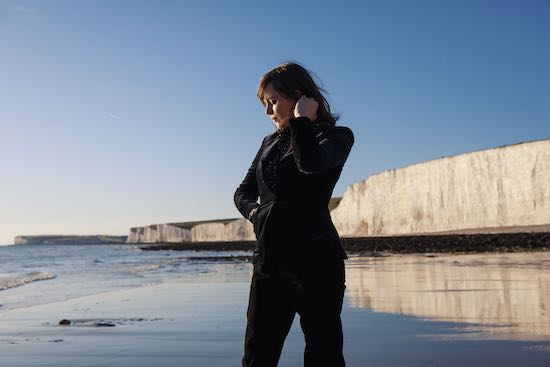It’s that bass gliss at the front end, pulls you right in and you’re there, in its world, encased in the landscape of this album. No way out.
Picture: lying on the grass in the park all day with old friends you no longer see nearly enough of. It’s maybe noon and you’re half cut, nowhere to go, nothing to do except for this burning somewhere inside you, ideas fizzing about that want-need action. Maybe they can wait a little longer. But the clouds are starting to come in. Can I borrow a jumper?
Picture: you’re at All Tomorrow’s Parties, the sun is baking down on Camber Sands and someone has slipped you an nth generation bootleg tape of Smile sessions as if it were a joint in the school playground. Brian Wilson is still more myth than legend, more crazy guy they tell stories about; less rock’n’roll hall of fame. Later on, you will inhale that tape like it’s perfume or crack and in the rich caramel haze that ensues it will commingle and commune with other, potent scents and smells from the long, lurching day: odd half-remembered bits of Tortoise, Rachel’s, Carla Bozulich, Blonde Redhead, The Sea and the Cake.
Picture: it’s 2019 and the world is ending and everything has already happened and you don’t know if you can find room in your heart anymore to be swept away and seduced again by such heady, romantic pop music. But you can and you should. Really.
As I listen to this album again and again I find myself reaching for roundly-voweled, softly consonanted words. Words like ‘home’. It’s welcoming, there’s comfort here. But it’s full of feelings that are not uncomplicated. This is also Freud’s home, and ETA Hoffmann’s. It has secrets. The great warmth of these songs, their strange aching languor, is always tinged with a seam of anxiety. Listen to the uncertain syncopation between drums and high plucked bass strings at 03:40 in on the album opener, like a murmur tinged with regret, the careful bottling of a rising panic. Listen to the way Dougall’s uniquely bruised voice swells forward and almost catches against itself a minute into ‘Simple Things’, the tiny pause just after that feels like a cliff edge you just stepped over unawares. Here is both the little luxury you reach for to take the edge off things. It is also the edge itself.
A New Illusion is the third solo album by Rose Dougall. Though the key influences that spring to mind – Buffy Sainte-Marie and Jean-Claude Vannier, assorted half-forgotten late 60s psych bands and bead-wearing Laurel Canyon weirdies, the English pop baroque once hymned by Bob Stanley, the pre-/post-millennial indie-post-rock of Broadcast, Stereolab, and the Sundays – remain much in place; compared to its gleaming, technicolour predecessor it is at once more intimate and more expansive, bigger and broader both in sonic palette and in heart.
There is a great conviviality here, an arms-around-each-other’s-shoulders, singing along in the pub kind of heartiness most apparent in the stride piano and sweeping chorus of the title track. But there is also a certain isolation, a kind of fuck you go-it-alone bloody-mindedness. It stands alone in a crowded urban street that is also a broad windswept plain somewhere far. Wide-eyed and optimistic yet somehow simultaneously hard-nosed and cynical. Seeing through the fantasy but choosing to embrace it anyway. It is so gloriously out of step and out of joint, at times it could almost be some lost Robert Wyatt record, unearthed and dusted down. Other times, it has a presentness that catches you short. There is great life and verve in these songs, teeming, irrepressible. Listen closely and you can hear the record breathing.


